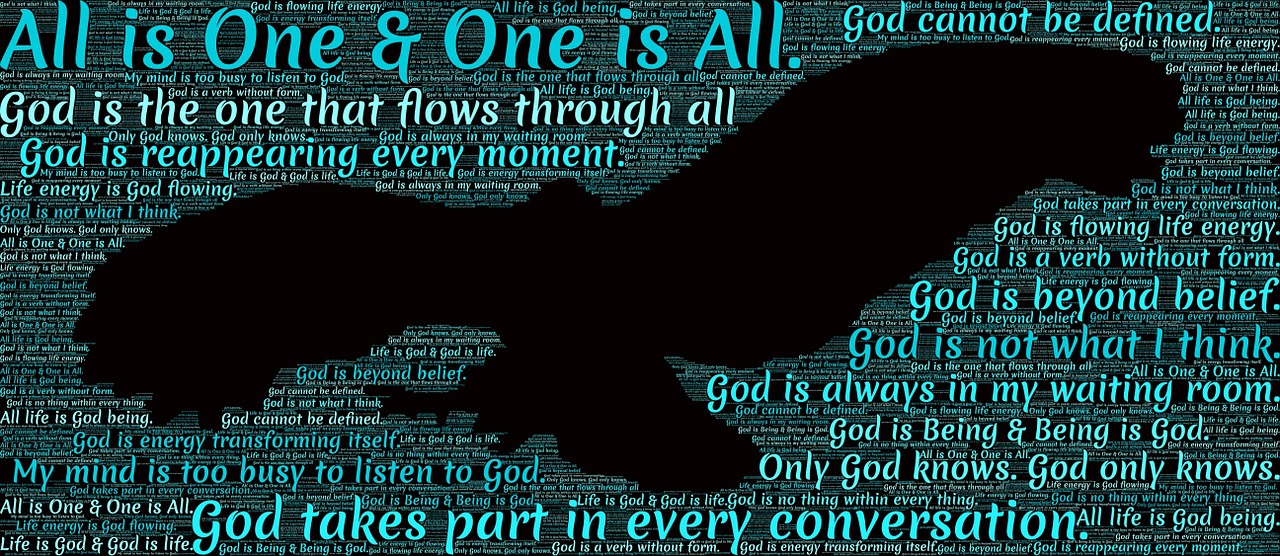Jesus, “The Word” of God: Unveiling the Divine Creative Power
Introduction
The opening verses of the Bible, found in the book of Genesis, are foundational to understanding the divine creative power that brought the universe into existence. These verses state, “In the beginning, God created the heavens and the earth” (Genesis 1:1). The creation account further unveils that God’s creative act was manifested through the spoken word. The phrase “and God said” is recurrently found in Genesis 1, signifying the significance of divine utterance in the process of creation. This concept of God creating through His Word sets the stage for a deeper understanding of Jesus Christ as “The Word” of God, as revealed in the New Testament. This article will explore the profound relationship between Jesus and the divine creative power expressed through the spoken word in the book of Genesis.
The Divine Creative Power: “And God Said”
The Genesis creation account unfolds with the repetition of the phrase “and God said.” These three simple words reveal a profound truth: the entire cosmos came into existence through the divine word. God’s spoken command brought light, heaven, earth, land, seas, vegetation, animals, and ultimately, humankind into being. Each time God spoke, creation responded accordingly, beautifully and harmoniously orchestrated by the very Word of God.
Jesus as “The Word” of God
In the New Testament, the apostle John introduces Jesus Christ as “The Word” in the opening verses of his Gospel. John writes, “In the beginning was the Word, and the Word was with God, and the Word was God” (John 1:1). Here, the connection between Jesus and the divine creative power described in Genesis becomes evident. Jesus, as “The Word,” existed from the very beginning, and He is both with God and is God Himself.
The Creative Power of Jesus
John continues to emphasize the role of Jesus as the creative force, stating, “All things were made through him, and without him was not any thing made that was made” (John 1:3). By linking Jesus to the creative act, the Gospel underscores His divinity and authority over all of creation. In essence, Jesus’ spoken word holds the same creative power that God used in Genesis 1 to bring the world into existence.
Restoration and Redemption
The concept of Jesus as “The Word” extends beyond creation. In the book of Hebrews, the author describes Jesus as the exact representation of God’s nature and the sustainer of all things (Hebrews 1:3). Through Jesus’ redemptive work on the cross, humanity finds the opportunity for restoration and reconciliation with God. The Word of God, in human form, brings a message of hope, love, and salvation to a fallen world.
The Word Made Flesh
The Gospel of John further emphasizes the significance of Jesus as “The Word” by describing Him as the Word made flesh. John writes, “And the Word became flesh and dwelt among us, and we have seen his glory, glory as of the only Son from the Father, full of grace and truth” (John 1:14). In this profound statement, the Gospel reveals that Jesus took on human form, living among people to bring God’s message of love and redemption directly to humanity.
The Power of Spoken Words
Throughout Jesus’ earthly ministry, His spoken words carried divine authority and power. His teachings and parables captivated the hearts and minds of listeners, revealing profound spiritual truths and calling people to repentance and transformation. Jesus’ spoken words not only healed the sick and restored sight to the blind but also raised the dead, attesting to the supreme authority of “The Word” made flesh.
Creation Reborn: The New Creation
The Apostle Paul, in his epistles, elaborates on the concept of Jesus as “The Word” by describing Him as the agent of a new creation. In 2 Corinthians 5:17, Paul writes, “Therefore, if anyone is in Christ, he is a new creation. The old has passed away; behold, the new has come.” Jesus, through His death and resurrection, offers a path to spiritual rebirth, where believers become part of a new creation, freed from the bondage of sin and death.
The Word at the Center of Christian Life
As believers, we are called to center our lives on “The Word” of God—both the written Word, the Bible, and the living Word, Jesus Christ. Just as God’s spoken word brought forth creation, so should our words and actions reflect Christ’s teachings and love to the world. By imitating Jesus, we become vessels of God’s creative power, participating in the transformation of lives and the renewal of the world.
Conclusion
The Genesis creation account, with its repeated “and God said,” lays the foundation for understanding Jesus as “The Word” of God. Jesus, as the creative force and divine Word made flesh, holds the same power that spoke



